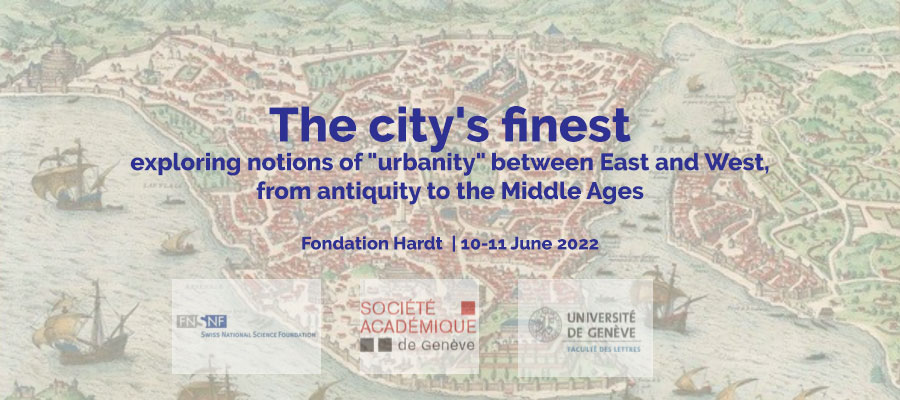The City's Finest: Exploring Notions of "Urbanity" between East and West, from Antiquity to the Middle Ages, Fondation Hardt, Vandœuvres, June 10–11, 2022
What did refinement and good taste mean for the Byzantines? What were the criteria informing these powerful tools of social distinction? How did the elites and other rival groups use them to gain sociopolitical prestige and impose their cultural hegemony? The answer to these questions revolves around the crucial concept of asteiotēs (“urbanity”), which the Byzantines partly inherited from the classical tradition. More complex than the well-studied paideia, asteiotēs defines an ideal of urbane education and ethical refinement that both incorporates and goes beyond mastery of the classical tradition. Given its connection with education, the intellectual elites, the imperial court and the very urban space of Constantinople, a thorough investigation of asteiotēs and its diachronic evolution will contribute to a better understanding of the dynamics governing Byzantine history, literature and society.
By bringing together scholars of Byzantine literature and society, it prepares the ground for a thorough investigation of asteiotēs in Byzantium. The participation of international experts in a wide range of disciplines, from medieval Arabic literatureto Scandinavianarchaeology,willlead to a wider investigation of ancient and medieval “urbanities”. This, in turn, will shed light on the Byzantine reception of earlier notions of ‘urbanity’, while at the same time highlighting the similarities and differences between Byzantine asteiotēs and analogous concepts in other medieval cultures.
The international workshop is organised in the context of the Swiss National Science Foundation research project The power of (good?) taste. Understanding refinement, sophistication and social distinction in Byzantium (P5R5PH_203048). It is generously financed by the University of Geneva, the Société Académique de Genève and the Swiss National Science Foundation.
